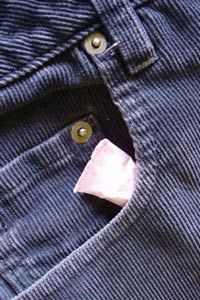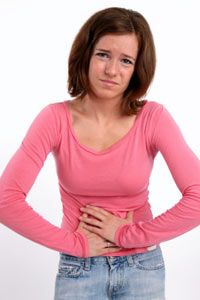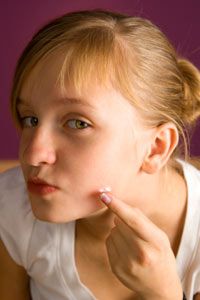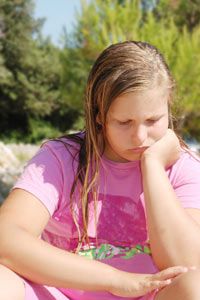Picture a little girl, showing no signs of adulthood, happily skipping or hand-clapping or squealing with childish delight. Looking at this happy-go-lucky kid, you would never guess at the biological uproar within. Her hormones are laying the groundwork for great unrest and change -- puberty is on its way.
Puberty starts when a small gland inside the middle of the base of your brain (the hypothalamus) begins to distribute a chemical it has been sitting on for years and years. This chemical is called gonadotropin-releasing hormone, or GnRH. GnRH has been biding its time inside the hypothalamus, keeping tabs on a gatekeeper gene called GPR54.
Advertisement
The hypothalamus watches over the state of the body, looking for just the right system-wide conditions to support puberty. One of the main ones is the level of a hormone called leptin, which is produced in fat cells. When body fat reaches a certain level and there's enough leptin, the hypothalamus makes its move to unleash puberty.
The GPR54 lends a hand while the GnRH rushes out of the hypothalamus and journeys to the gland directly below the hypothalamus, the pituitary gland. The pea-shaped gland has been waiting for the appearance of GnRH, which is a sign for the pituitary to launch its own chemicals: leutinizing hormone (LH) and follicle-stimulating hormone (FSH). Once these chemicals are coursing through the body -- triggering hormone production in the ovaries, signaling the breasts to develop and creating psychological and physical mayhem -- childhood is officially ending and making way for womanhood.
In this article, we'll learn about female puberty and the changes it creates in a girl's body. Next, we'll talk about some basics.
Advertisement






